|
Genres, Themes, Actors, and Directors:
- Alcoholism and Drug Addiction
- Class Relations
- Dorothy Malone Films
- Douglas Sirk Films
- Lauren Bacall Films
- Love Triangle
- Millionaires
- Robert Stack Films
- Rock Hudson Films
- Siblings
Response to Peary’s Review:
Peary notes that this “tempestuous melodrama” — “produced by Albert Zugsmith… and directed by Douglas Sirk, the German emigre who made films about American life and family” — features “strong performances, especially by an extremely sexy Dorothy Malone” (who won an Oscar for her supporting work here), and “ranks with The Tarnished Angels [1957] as Sirk’s best work”. He points out that “as in all good potboilers, the characters are driven by their passions and are surrounded by destructive forces: those characters who are destroyed also have destructive forces emanating from the inside”. As argued by Tim Dirks on his Greatest Films site, the film critiques “the underlying hollowness and shallowness of American society in the placid 1950s,” portraying “misfit lives stunted and corrupted by mental anguish, alcoholism, sexual frustration, and corruptible materialistic wealth”. And, as noted in Bright Lights’ review, the presence of “private jets, rivers of booze, barroom fisticuffs, shiny clothes, and a forest of phallic oil derricks” link this film inextricably to its heirs apparent — the popular television series “Dynasty” and “Dallas”.
While Sirk’s previous films — such as Magnificent Obsession (1954) and All That Heaven Allows (1955) — afforded audiences the opportunity to relate to the central female protagonist’s romantic and social crises, such an association is less obvious here. Presumably, audiences were meant to primarily sympathize with Bacall’s character:
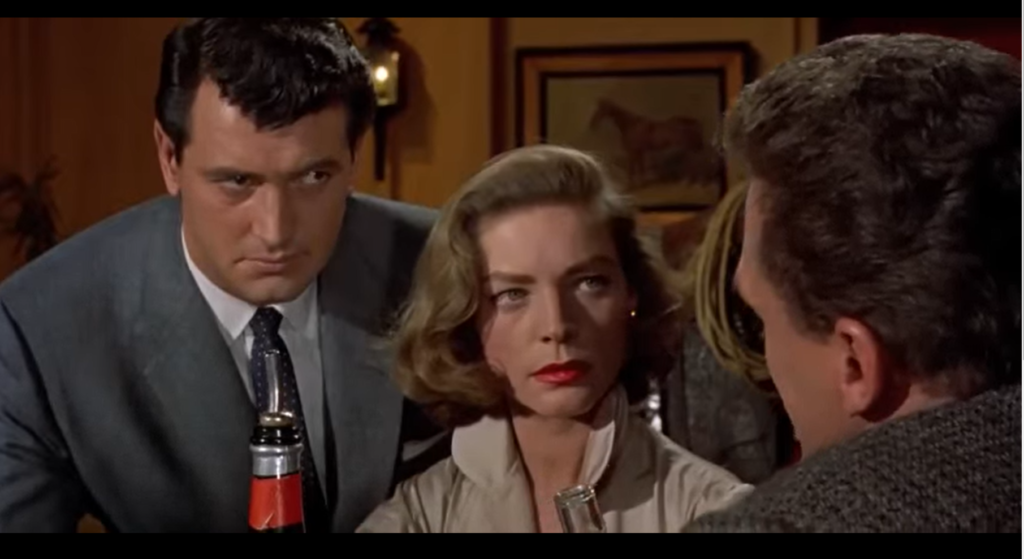
… who is lured into a world of wealth and privilege in part due to her compassion for such an obviously “broken” man as Stack (who comes across as oddly sympathetic, despite his character’s deep-seated flaws; Stack is in fine form).
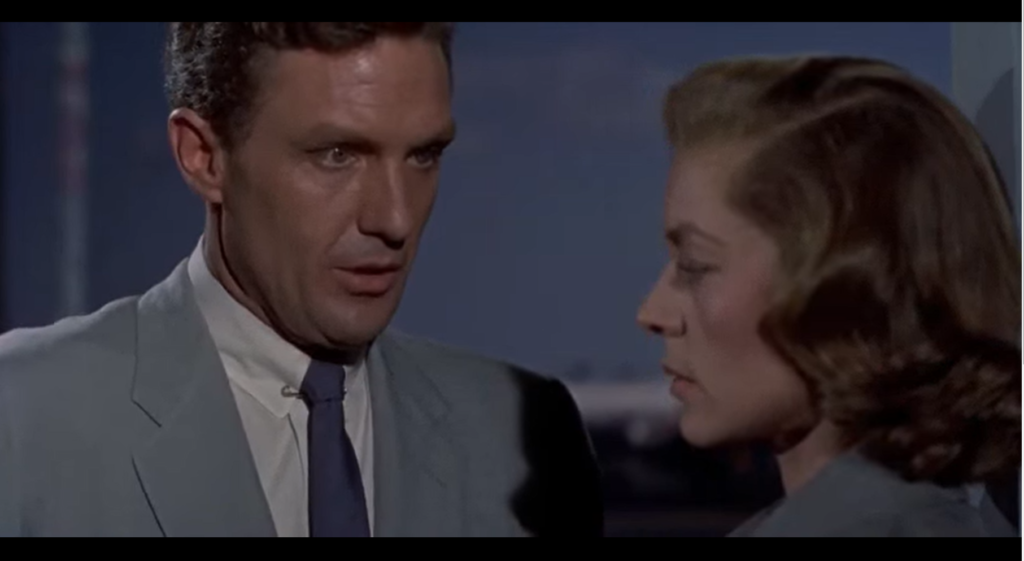
Meanwhile, Hudson’s “Mitch Wayne” is a likable, no-nonsense counterpart for male audiences to relate to.
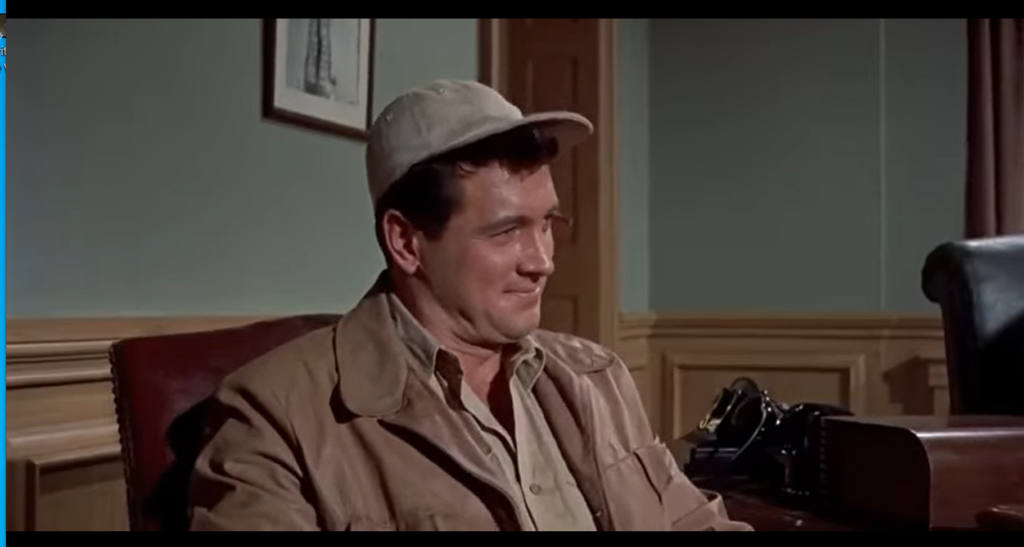
But it’s Malone’s sexy, deeply troubled “Marylee” who is ultimately most memorable here, with her drunken, frenzied dervish (cross-cut with her father’s death) a disturbing highlight of the film.
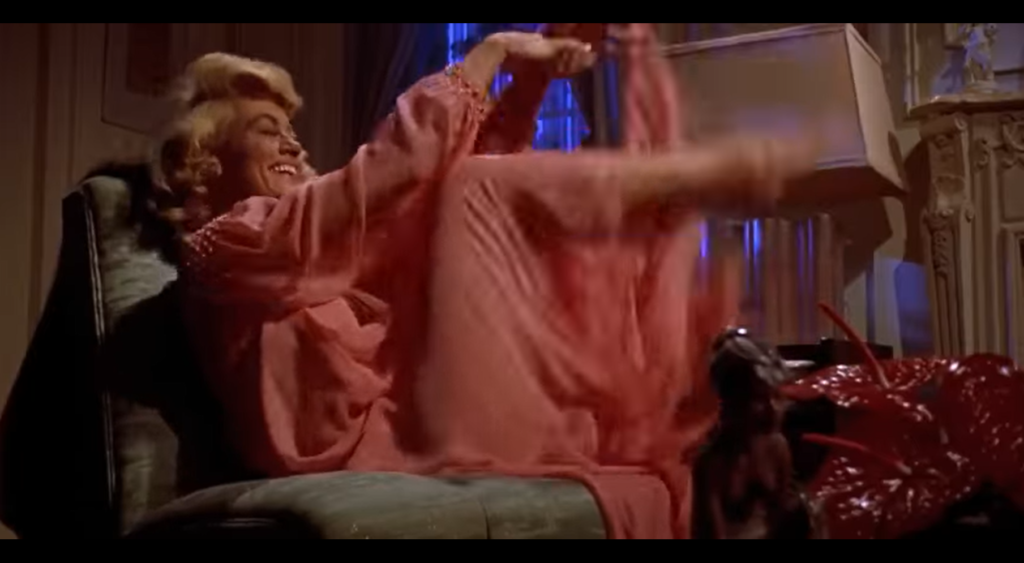
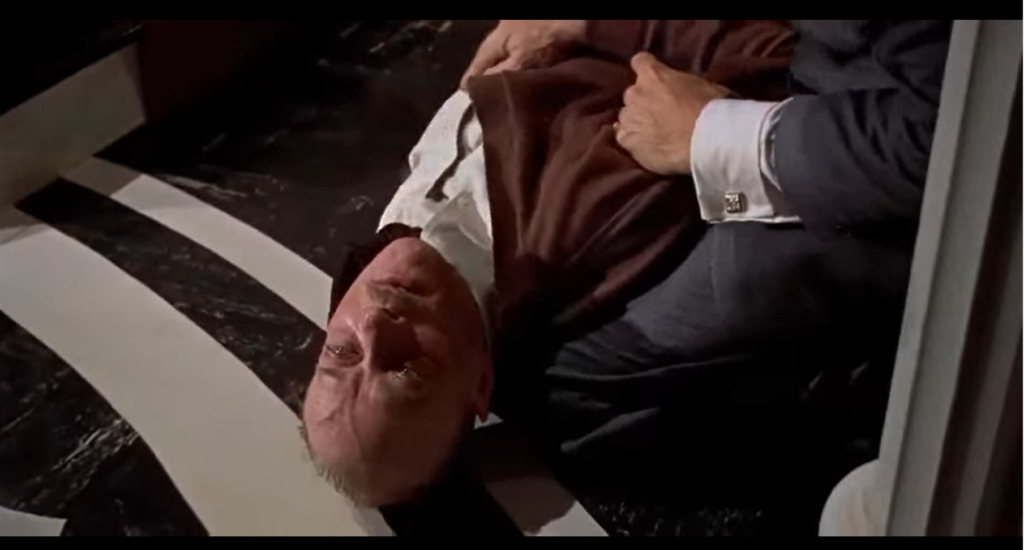
She and her brother are clear cautionary evidence of the way in which “those who have money… are doomed, as if money created bad genes”. One may leave the film feeling oddly grateful for not being wealthy.
Redeeming Qualities and Moments:
- Dorothy Malone as Marylee Hadley
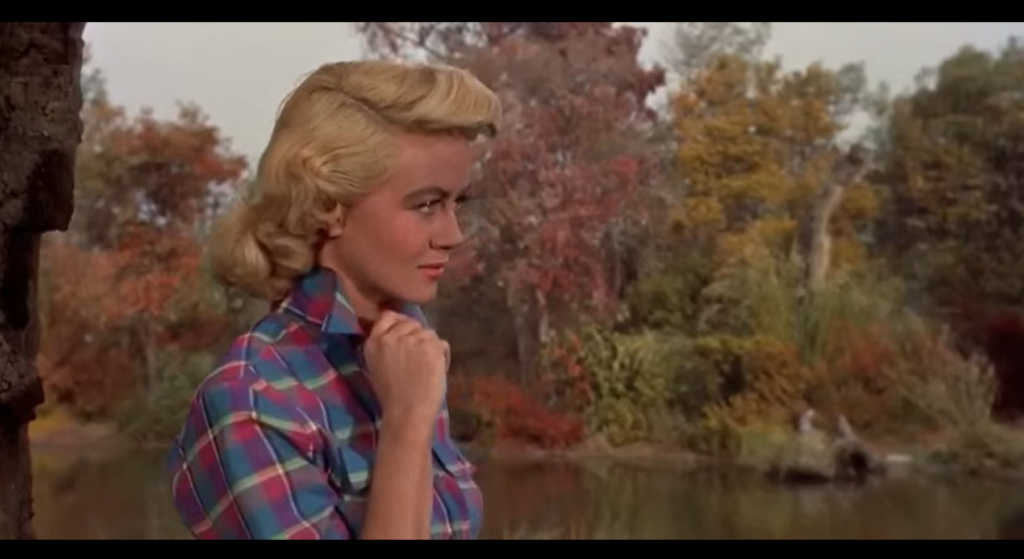
- Robert Stack as Kyle Hadley
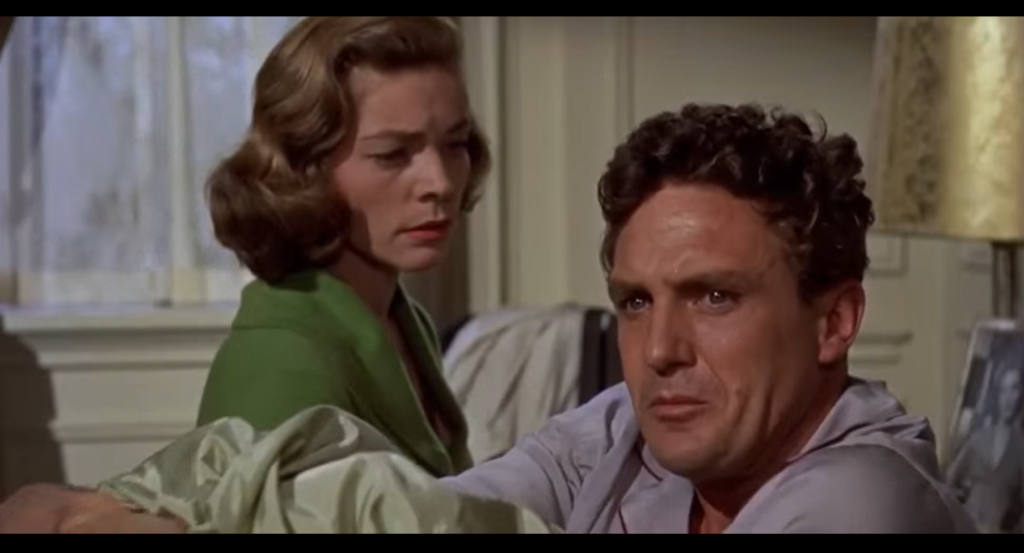
- Rock Hudson as Mitch Wayne
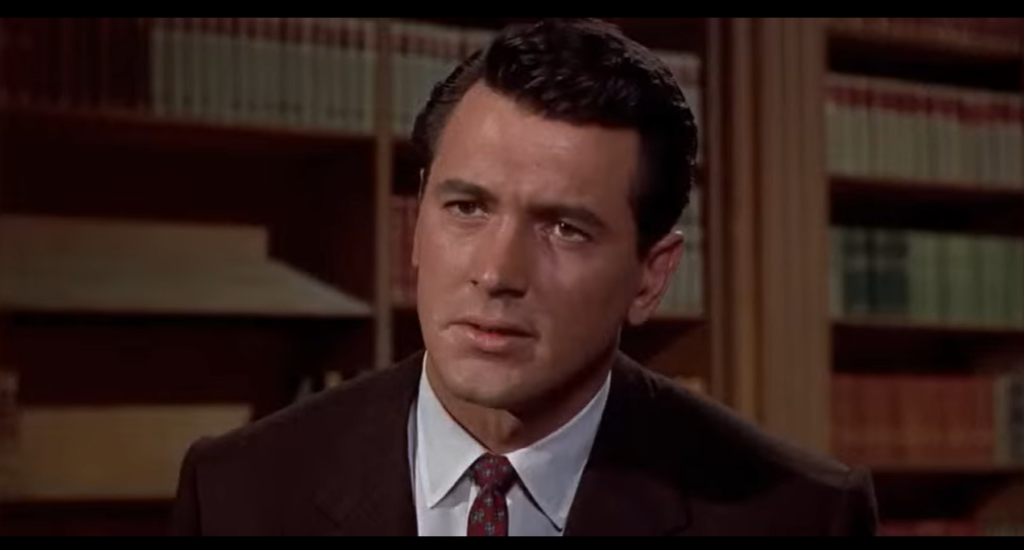
- Vibrant sets and Technicolor cinematography
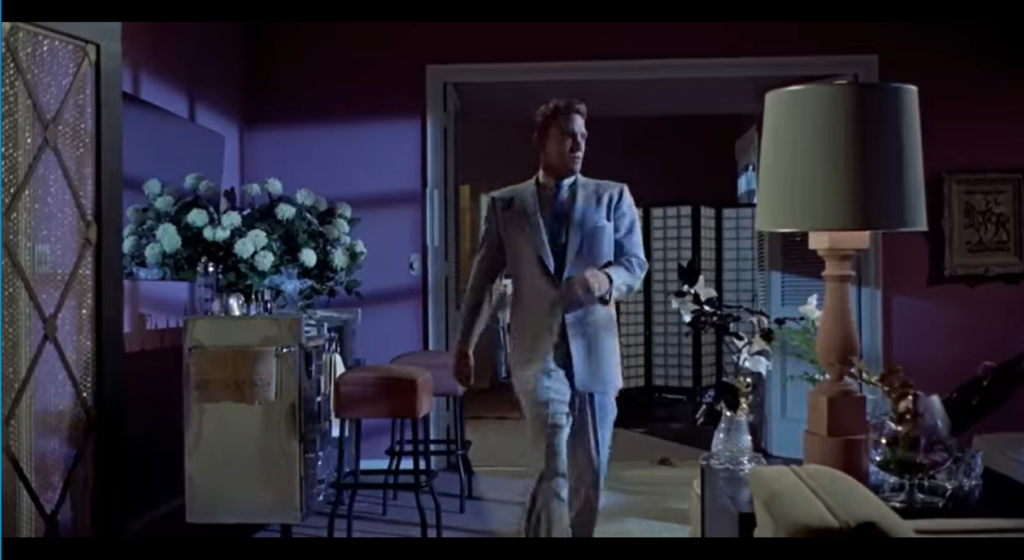
Must See?
Yes, as a mid-century melodramatic classic — and for Malone’s Oscar-winning supporting performance.
Categories
- Important Director
- Oscar Winner or Nominee
(Listed in 1001 Movies You Must See Before You Die)
Links:
|
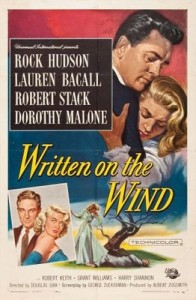









One thought on “Written on the Wind (1956)”
A once-must, for Sirk’s direction, the performances and the film’s visual look/style.
Sirk and his production team took out a huge box of crayons, so to speak, and went to town, somehow mixing restraint with pure melodrama that’s shameless inside and out. The result is something that heterosexual male ffs may appreciate once, female ffs may admire a few times, and gay ffs are likely to feast on every now and then.
Gay men just can’t – and shouldn’t – resist this kind of dialogue:
Stack: You’re a filthy liar.
Malone: I’m filthy. Period.
Still, a number of directors could have looked at this script and, seeing what was written on the pages, may have thought, “Oh, cripes, what would I do with *this*?!” But Sirk apparently saw an opportunity to turn sheer soap opera into a compelling drama. The story may be over-heated but it’s played straight & without camp (though, again, that won’t stop gay men from feeding off of it). The director approached his cast with the straightforward decision to sell the story with simple conviction – and it works that way.
Although, with Malone, it seems Sirk may have given her an extra piece of advice: “Remember: you’re in heat…24/7…even when you’re standing completely still…and even when you try in vain to be a good girl.” (Her “frenzied dervish” is, indeed, a highlight; that whole sequence, in particular, benefits from very effective editing.)
We don’t learn anything particularly unique through this story; mostly we’re told, again, that some rich kids are spoiled and that’s all there is to it. The only difference with Malone and Stack’s characters is that, deep down, they appear willing to throw off their sorry ways if they each get the one thing they think will help them guard against self-destruction. …That said, neither of them does anything much in life besides live idly or recklessly, and nurse somewhat-admirable aspirations.
All told, this is a strictly commercial film, but Sirk affords it that something extra that keeps it from being easily forgotten passion-pulp.
Notes:
Fans of Russ Meyer’s ‘Beyond the Valley of the Dolls’ may note the similarity between the opening of Meyer’s film (seeing the story’s climax first) and how ‘WOTW’ begins.
‘WOTW’ is one of three films that Fassbinder told his DP for ‘Lola’ to watch prior to shooting ‘Lola’. The other two were ‘Johnny Guitar’ and ‘The Barefoot Contessa’: three very brightly colored films indeed. Those who have seen ‘Lola’ will enjoy seeing how ‘WOTW’ richly contributed to its design.